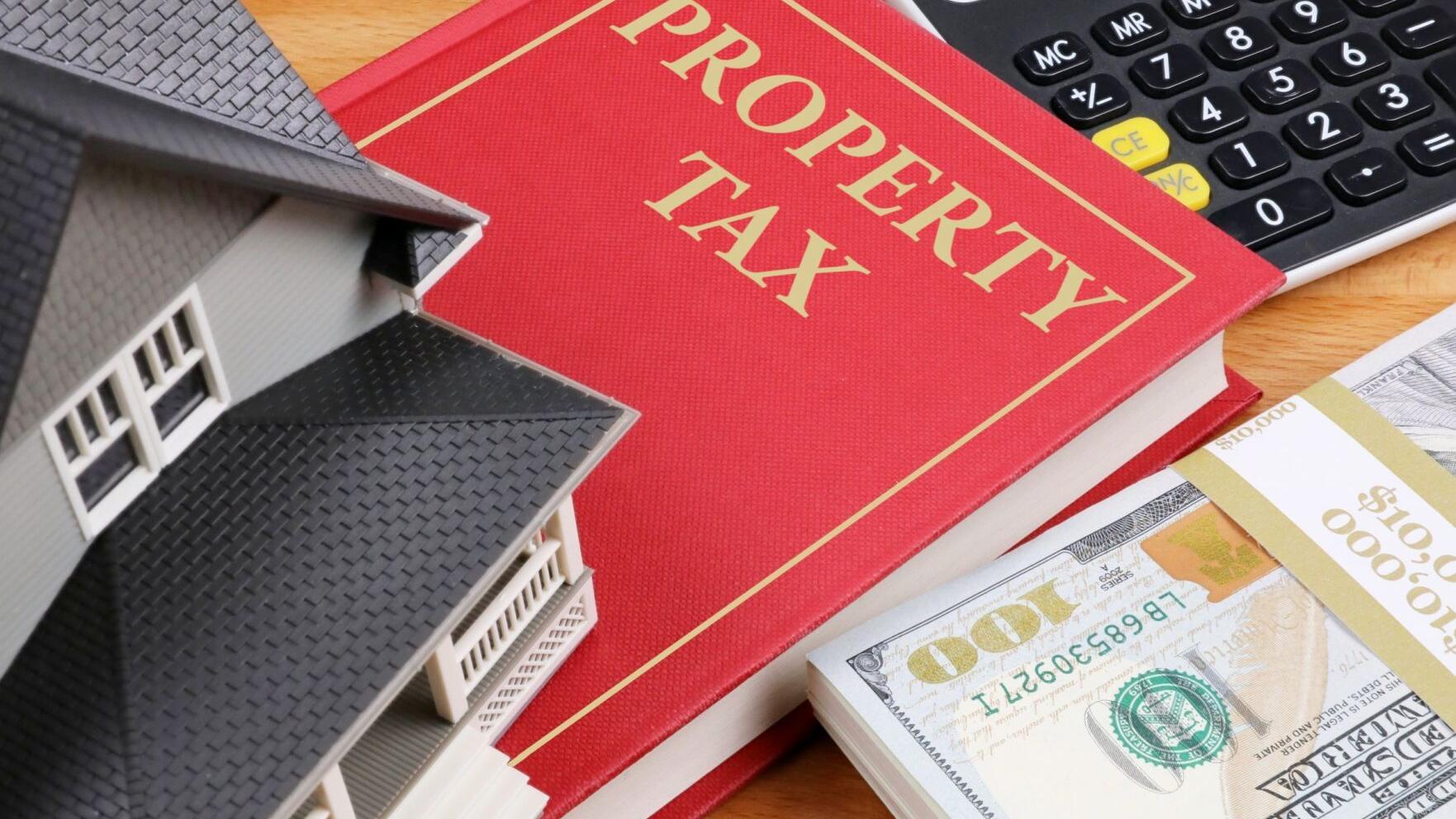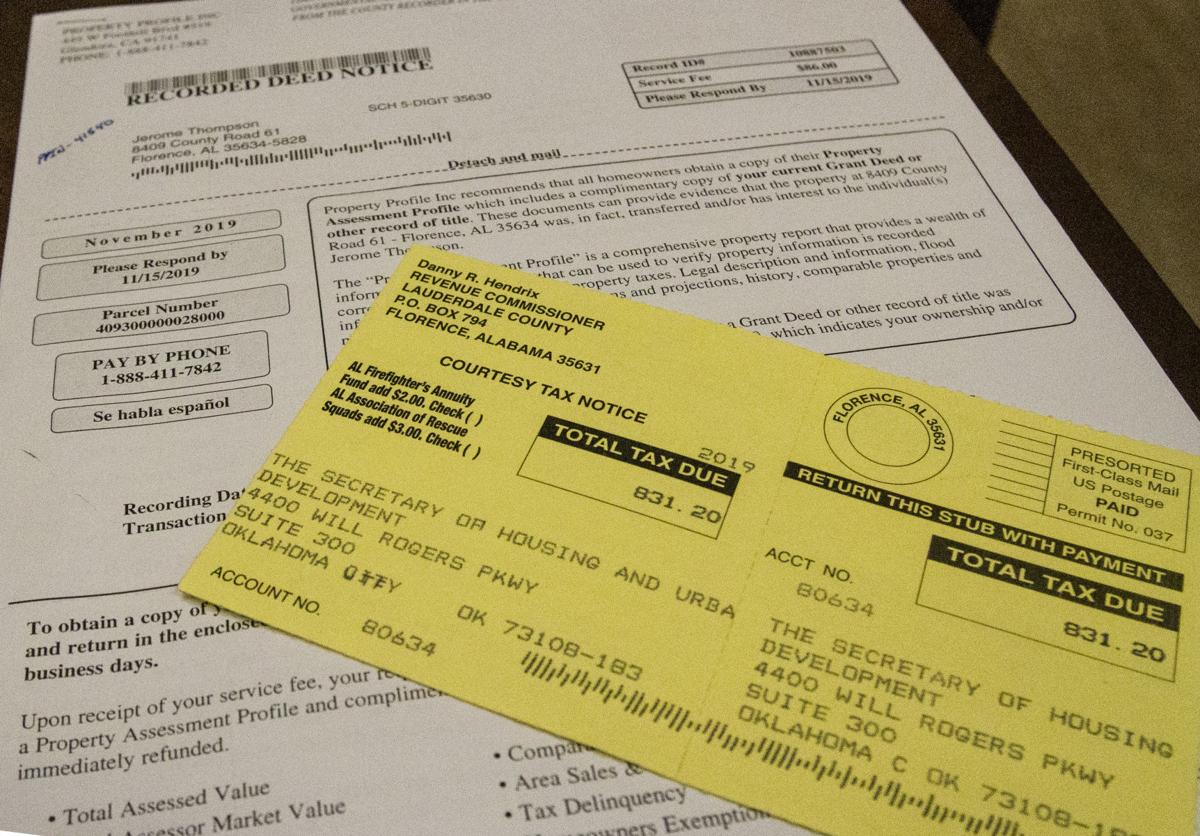Home>Home Maintenance>What Is A Property Assessment Notice


Home Maintenance
What Is A Property Assessment Notice
Modified: March 6, 2024
Discover what a property assessment notice is and how it can impact your home-maintenance. Gain insights and take action for a proactive approach to your property.
(Many of the links in this article redirect to a specific reviewed product. Your purchase of these products through affiliate links helps to generate commission for Storables.com, at no extra cost. Learn more)
Introduction
Welcome to the world of homeownership! As a proud homeowner, it is essential to have a good understanding of various aspects of your property. One critical aspect is the property assessment notice. If you have recently purchased a home or are planning to do so, you may have come across this term. In this article, we will delve into the details of what a property assessment notice is, its importance, and how it affects you as a homeowner.
A property assessment notice is an official document provided by the local government or a municipal authority that outlines the assessed value of your property. This value is crucial as it determines your property taxes and may impact your ability to secure financing or refinance your home. Understanding the information provided in this notice is vital to ensure you have a clear picture of your property’s worth and make informed decisions related to homeownership.
Key Takeaways:
- Property assessment notices provide homeowners with vital information about their property’s value and tax obligations, helping them make informed decisions and plan their finances effectively.
- Homeowners have the right to appeal or challenge their property assessment if they believe it’s inaccurate or unfair, ensuring fair treatment and accurate taxation.
Read more: What Is MPAC Property Assessment Notice
Definition of Property Assessment Notice
A property assessment notice is an official document issued by the local government or municipal authority to homeowners. It provides detailed information about the assessed value of a property for taxation purposes. This document is typically sent to homeowners annually, but the frequency may vary depending on local regulations and practices.
The assessed value mentioned in the property assessment notice is an estimate of the fair market value of the property as determined by the assessment authority. The assessment authority evaluates various factors such as the property’s size, location, construction quality, amenities, and recent real estate market trends to arrive at this value.
The property assessment notice also includes important details such as the property address, legal description, and the name of the property owner. It may also outline any exemptions or special assessments that apply to the property, such as tax breaks for senior citizens or renovations.
It is essential to note that the property assessment notice is not the same as the property tax bill. While the assessment notice determines the value of the property for taxation purposes, the actual tax amount owed is calculated based on the tax rate set by the local municipality or government entity.
The property assessment notice serves as a transparent and standardized method for determining property values consistently across a jurisdiction. It helps maintain fairness and equity in the assessment process by ensuring that properties are assessed fairly and accurately based on their market value.
Now that we have a clear understanding of what a property assessment notice is let us explore its purpose in the next section.
Purpose of Property Assessment Notice
The main purpose of a property assessment notice is to provide homeowners with vital information regarding the assessed value of their property. Here are some key purposes of the property assessment notice:
- Determining Property Taxes: One of the primary purposes of the property assessment notice is to determine the amount of property taxes that homeowners are required to pay. The assessed value of the property plays a significant role in calculating the property tax bill. Typically, the higher the assessed value, the higher the property taxes.
- Ensuring Fairness and Equity: The property assessment notice aims to ensure fairness and equity in the tax assessment process. By providing a standardized approach to evaluating property values, the assessment notice helps maintain consistency and transparency. It ensures that similar properties in the same area are assessed on a level playing field, promoting equity throughout the community.
- Informing Property Owners: Another crucial purpose of the property assessment notice is to inform property owners about the current value of their property. This information can be useful for homeowners who are planning to sell their property, refinance their mortgage, or make improvements to their home. By having a clear understanding of the assessed value, homeowners can make well-informed decisions about their property.
- Supporting Municipal Budgeting: The assessed values provided in the property assessment notice are used by local municipalities to estimate property tax revenues. This information helps in budget planning and determining the financial resources available for various public services, such as schools, roads, and emergency services.
- Facilitating Property Insurances and Loans: Some insurance companies and lenders may consider the assessed value of a property when determining insurance premiums or loan eligibility. The property assessment notice can serve as supporting documentation for these purposes.
Overall, the purpose of the property assessment notice is to ensure transparency in the tax assessment process, provide homeowners with valuable information about their property’s value, and support fair and equitable taxation within the community.
Components of a Property Assessment Notice
A property assessment notice contains several key components that provide homeowners with essential information about their property assessment. Here are the main components typically found in a property assessment notice:
- Property Information: This section includes details about the property, such as the property address, legal description, and the name of the property owner. It is important to review this information for accuracy and notify the assessment authority if any discrepancies are found.
- Assessed Value: The assessed value is the estimated fair market value of the property as determined by the assessment authority. This value is a crucial component of the assessment notice, as it determines the property taxes that homeowners are required to pay. It is essential to understand how the assessed value is determined and to review it for accuracy.
- Tax Calculation: This section provides a breakdown of the property tax calculation based on the assessed value. It may include information on the tax rate, any applicable exemptions or discounts, and the total amount of property taxes owed for the year. Reviewing this section helps homeowners understand how their property tax amount is calculated.
- Comparative Information: Some property assessment notices may include comparative information, such as the assessed values of similar properties in the neighborhood. This information can provide homeowners with a benchmark to assess the fairness of their assessment compared to similar properties in the area.
- Exemptions or Special Assessments: If any exemptions or special assessments apply to the property, they will be listed in this section. Examples of exemptions can include senior citizen or disabled person exemptions, while special assessments can include additional charges for infrastructure improvements or community services.
- Contact Information: The property assessment notice will typically provide contact information for the assessment authority or municipal office. Homeowners can use this information to seek clarification, request a review or appeal the assessment if they believe it to be incorrect or unfair.
It is important for homeowners to thoroughly review each component of the property assessment notice to ensure accuracy and fairness. If there are any questions or concerns about the information provided, homeowners should reach out to the appropriate authority for clarification or to initiate any necessary actions.
Importance of Property Assessment Notice
The property assessment notice holds significant importance for homeowners. Here are some key reasons why this document is essential:
- Property Valuation: The property assessment notice provides homeowners with an official estimate of their property’s value. This valuation is crucial for understanding the worth of your home and can be used for various purposes, such as selling or refinancing the property. Additionally, knowing the assessed value allows homeowners to have a better understanding of their net worth and financial standing.
- Taxation: Property taxes play a vital role in local government revenue, and the property assessment notice is the basis for calculating these taxes. By understanding the assessed value of their property, homeowners can accurately anticipate their tax obligations and plan their finances accordingly. This information is essential for budgeting and ensuring compliance with tax regulations.
- Equity and Fairness: The property assessment notice promotes fairness and equity within a community. By using standardized methods to assess property values, it ensures that similar properties are treated equally for tax purposes. This system helps prevent the burden of property taxes from unfairly falling on certain homeowners or neighborhoods.
- Financial Planning: The assessed value provided in the property assessment notice also helps homeowners plan their long-term financial goals. It serves as an indicator of the property’s potential for appreciation, allowing homeowners to make informed decisions about investments or improvements. Additionally, understanding the assessed value can assist in calculating the return on investment for certain home renovations or upgrades.
- Appeals and Challenges: The property assessment notice also plays a crucial role in the appeal and challenge process. If homeowners believe that their assessed value is inaccurate or unfair, they have the right to contest it. The property assessment notice provides the necessary information and contact details for seeking further clarification or initiating the appeals process.
- Real Estate Market Insights: The property assessment notice can offer valuable insights into the local real estate market. By comparing the assessed values of similar properties in the area, homeowners can gain a better understanding of property trends and market conditions. This information can be useful for homeowners considering buying or selling property in the future.
In summary, the property assessment notice is important for homeowners as it provides an official estimate of the property’s value, helps calculate property taxes, promotes fairness, aids in financial planning, facilitates appeals, and offers insights into the real estate market. Homeowners should carefully review their property assessment notice and take necessary action if they have concerns about its accuracy or fairness.
Check your property assessment notice carefully for any errors or discrepancies in the assessed value or property details. If you find any issues, contact your local assessor’s office to have them corrected.
Read more: What Is Property Assessment
How Property Assessment Notices are Determined
Property assessment notices are determined through a systematic and standardized process carried out by assessment authorities. While specific methods may vary depending on the jurisdiction, the following are some common approaches used to determine property assessments:
- Market Analysis: Assessment authorities analyze the local real estate market to gather data on recent sales, property listings, and market trends. This information helps in understanding the current property values in a particular area.
- Property Inspections: In some cases, assessment authorities may conduct on-site inspections to assess the physical condition, features, and amenities of a property. These inspections provide a more accurate picture of the property’s value.
- Computer-Assisted Valuation Models: Many assessment authorities use computer-assisted valuation models (CAVM) that rely on algorithms and data analysis to calculate property values. These models take into account various factors such as property size, location, age, construction quality, and recent sales of similar properties.
- Statistical Analysis: Statistical analysis is often employed to analyze market data and derive valuation factors. This includes tracking property sales within a defined area and using regression analysis to determine the relationship between various property characteristics and their influence on value.
- Income Approach: For commercial properties or income-generating properties, the income approach may be used. This method involves analyzing the property’s potential income, expenses, and market capitalization rates to estimate its value.
- Comparative Analysis: Comparative analysis involves comparing a property with recently sold properties that are similar in terms of size, location, and amenities. The assessment authority evaluates how the subject property compares to these comparable properties in terms of condition and location to arrive at an assessed value.
Once the assessment authority determines the assessed value of a property, it is typically communicated to the homeowner through a property assessment notice. It is important to note that property assessments are not permanent and may be adjusted periodically to reflect changes in the real estate market or improvements made to the property.
Homeowners who have concerns about the accuracy or fairness of their property assessment have the right to appeal or challenge the assessment. The property assessment notice usually provides information on the appeals process and the necessary steps to follow.
Understanding how property assessment notices are determined can help homeowners make informed decisions related to their property and taxes. It is advisable to stay updated on local assessment practices and policies to ensure a fair and accurate assessment of your property.
Understanding the Assessment Value
The assessment value is a crucial component of the property assessment notice, as it represents the estimated fair market value of a property for taxation purposes. Understanding the assessment value is essential for homeowners, as it directly impacts property taxes and various other aspects related to homeownership. Here are some key points to help you understand the assessment value:
- Basis for Tax Calculation: The assessment value serves as the basis for calculating property taxes. Generally, the higher the assessed value, the higher the property taxes. It is important to note that tax rates set by the local municipality or government entity also play a role in determining the final tax amount.
- Market-Based Estimate: The assessment value is an estimate of the property’s fair market value, which is the price it would sell for in an open and competitive market. Assessment authorities use various methods, such as market analysis and comparative analysis, to arrive at this value.
- Property Characteristics: The assessment value takes into account various factors related to the property, including its size, location, age, construction quality, amenities, and any recent improvements. These characteristics play a role in determining the value as they affect the desirability and marketability of the property.
- Not the Same as Sale Value: It’s important to note that the assessment value is not the same as the sale value or the amount a property would sell for in the current market. The assessment value is a standardized estimate used for tax purposes and may not reflect the specific market conditions or recent sales in the area.
- Periodic Reassessments: Property assessments are typically conducted periodically, often annually or every few years, to reflect changes in property values. These reassessments ensure that assessments remain current and reflective of the property’s market value. It is important to understand that reassessments can result in changes to the assessment value, which may impact property taxes.
- Appealing the Assessment: If homeowners believe that the assessment value is incorrect or unfair, they have the right to appeal or challenge it. The property assessment notice often provides information on the appeals process, including deadlines and the necessary documentation required for an appeal.
Understanding the assessment value is crucial for homeowners to grasp the financial implications it has on their property taxes. It allows homeowners to plan their finances accurately and make informed decisions regarding their property and homeownership. It’s essential to review the assessment value provided in the property assessment notice and take appropriate action if any concerns or inaccuracies are identified.
Appeals and Challenges to Property Assessment Notices
Property assessment notices provide homeowners with an estimate of their property’s value for tax purposes. However, there may be instances where homeowners disagree with the assessed value or believe that their assessment is incorrect or unfair. In such cases, homeowners have the right to appeal or challenge their property assessment. Here’s an overview of the appeals and challenges process:
- Review the Assessment Notice: The first step is to carefully review the property assessment notice. Ensure that all the information, such as property details and assessed value, is accurate. Note any discrepancies or concerns that you may have.
- Contact the Assessment Authority: If you have questions or concerns about your assessment, contact the assessment authority or municipal office listed on the property assessment notice. Discuss your issues with them and seek clarification regarding the assessment process and valuation methods.
- Provide Supporting Documentation: If you still believe that your assessment is incorrect or unfair, gather relevant supporting documentation to substantiate your appeal. This can include recent property appraisals, sale prices of comparable properties, or records of any significant defects or damages that affect your property value.
- Follow the Appeals Process: Each jurisdiction has its own appeals process and deadlines. It is important to adhere to the guidelines and timelines specified by the assessment authority. Typically, you will need to complete a formal appeal form and submit it along with any supporting documentation.
- Attend an Assessment Review Board Hearing: In some cases, an assessment review board or similar administrative body will evaluate your appeal and hear your case. Prepare your arguments and present your evidence during the hearing to support your request for a reassessment.
- Receive a Decision: Following the hearing, the assessment review board will issue a decision regarding your appeal. The decision will outline whether your assessment will be changed, upheld, or adjusted. It is important to carefully review the decision and assess its implications.
- Further Appeal Options: Depending on the jurisdiction and the decision of the assessment review board, you may have further options for appeal. This could involve pursuing your case through a higher court or an independent tribunal. Consult legal advice if necessary.
Remember that the appeals process varies depending on the jurisdiction and local regulations. It is important to carefully review the specific guidelines and requirements outlined by the assessment authority or municipal office. Keep track of any deadlines for submission and maintain clear communication throughout the process.
Appealing your property assessment requires careful consideration and preparation. While it can be a complex and time-consuming process, it provides homeowners with the opportunity to address any concerns with their property assessment and ensure fair and accurate taxation.
Conclusion
Property assessment notices play a crucial role in homeownership, providing homeowners with valuable information about the assessed value of their property and its impact on property taxes. Understanding the components of a property assessment notice, including the assessment value, is essential for making informed decisions and ensuring fairness in the tax assessment process.
By diligently reviewing your property assessment notice, you can verify the accuracy of the information provided and identify any discrepancies. If you believe that your assessment is incorrect or unfair, you have the right to appeal or challenge it through the designated process. Taking advantage of this opportunity ensures that your property assessment aligns with market value and that you are not burdened with higher taxes due to an inaccurate assessment.
Moreover, recognizing the importance of property assessment notices helps homeowners plan their finances more effectively. Being aware of the assessed value allows you to anticipate your property tax obligations and budget accordingly. It also provides insight into the local real estate market, helping you make informed decisions about buying, selling, or refinancing your property.
Remember that property assessments are periodically reassessed to reflect changes in property values. Staying informed about local assessment practices and policies can help you navigate the process and ensure fair treatment throughout your homeownership journey.
Overall, property assessment notices provide homeowners with transparency, equity, and valuable information about their property’s value and tax obligations. By understanding and actively engaging with the assessment process, you can ensure that your property assessment is accurate, fair, and reflective of the true value of your home.
So, take the time to familiarize yourself with your property assessment notice and the options available to you for appeal if needed. Use this information to make informed decisions about your property and finances. And remember, being an informed homeowner is key to protecting your investment and ensuring a successful homeownership experience.
Frequently Asked Questions about What Is A Property Assessment Notice
Was this page helpful?
At Storables.com, we guarantee accurate and reliable information. Our content, validated by Expert Board Contributors, is crafted following stringent Editorial Policies. We're committed to providing you with well-researched, expert-backed insights for all your informational needs.















0 thoughts on “What Is A Property Assessment Notice”